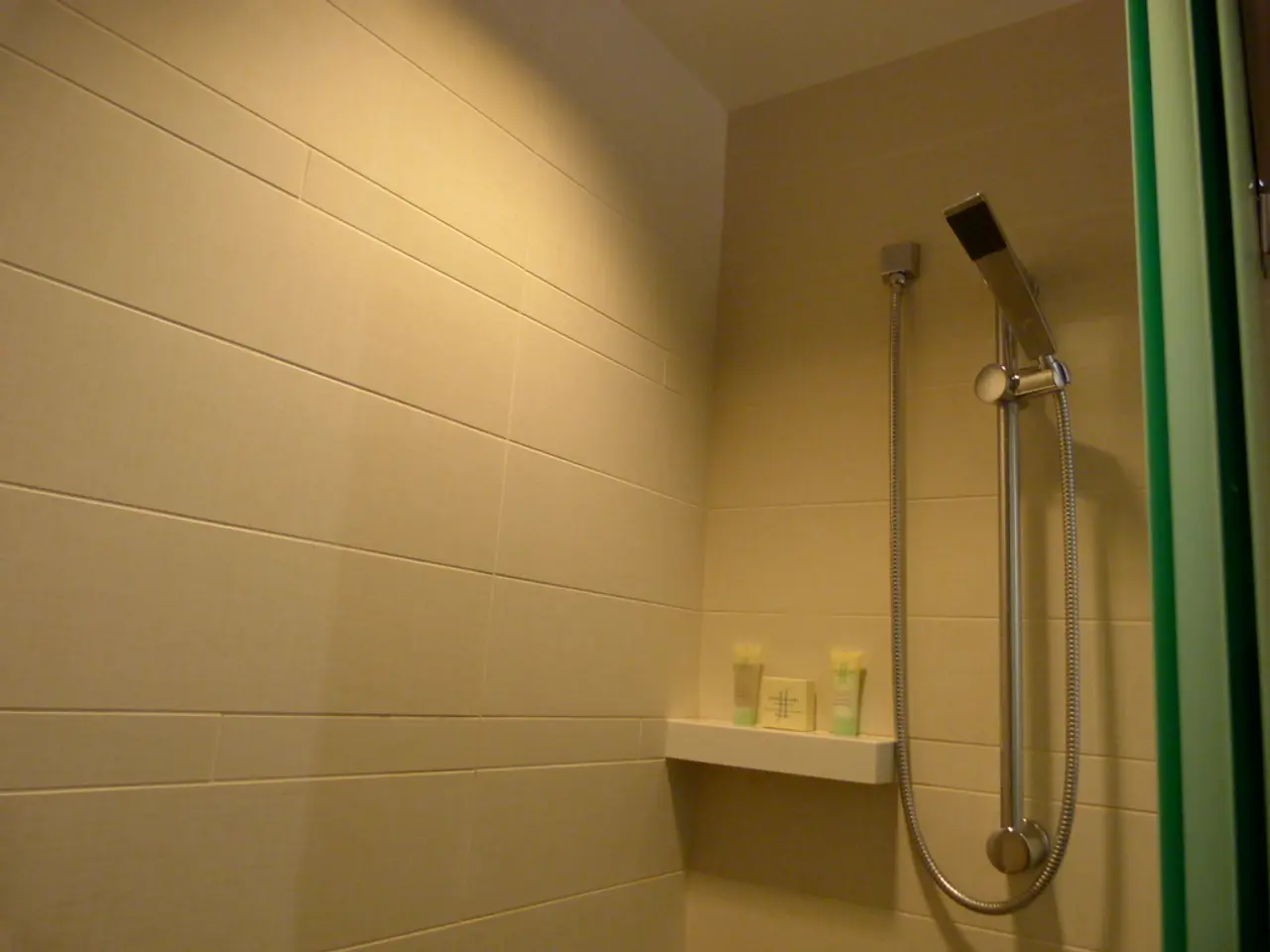Tehran's public toilets shut down due to water shortage crisis
In the heart of Iran, the capital city of Tehran is grappling with a severe water crisis that has led to urgent measures to conserve the dwindling water resources. The situation is causing significant issues for its citizens, with many taking to social media to express their concerns about living conditions.
The government, led by President Massud Peseschkian, is urging citizens to consume less water and has implemented emergency water rationing and conservation campaigns. These measures include hoarding water, relying on alternative sources such as trucked-in supplies, and enduring intermittent water and power outages.
One of the most noticeable changes in Tehran is the closure of public toilets, a strategy aimed at conserving water. The Tehran municipality has not officially commented on these closures, but eyewitnesses have confirmed their occurrence. With an estimated 20,000 public toilets in the metropolitan area, the closure of these facilities is having a significant impact.
The closure of public toilets is particularly challenging for Tehran residents during the ongoing power crisis. Prolonged power outages are common, making it impossible to use air conditioning in temperatures between 40 and 50 degrees Celsius. The situation is worsening daily, with many public toilets, including those near and inside metro stations, already being closed.
The government's water-saving measures are a response to the severe depletion of reservoirs such as Amir Kabir, Lar, and Latyan, which according to satellite data, have reached new historic lows, holding as little as 6–14% of their usable volume.
Officials have also acknowledged the systemic mismanagement contributing to the crisis and the necessity for fundamental reforms in water governance and usage policies, especially in agriculture, which consumes the largest share of water.
Despite these efforts, experts warn that the situation reflects a structural failure in water resource management and that if these measures fail to curb consumption and improve management, Tehran could face widespread rationing, agricultural decline, and social unrest.
President Peseschkian has even considered relocating the capital to prevent potential chaos, describing the situation as a "natural disaster" that could worsen in the coming weeks. In response, serious consideration is being given to reducing the workweek from five to four days, or even imposing a one-week shutdown of the capital to save power and water.
The ongoing water and power crisis in Iran is a primary concern for its citizens, with many complaining on social media that it is barely possible to live with dignity under these conditions. Didehban-Iran, a city resident, accuses the government of denying Tehran residents a basic necessity by halting the essential public toilet service.
References:
- Al Jazeera. (2023, March 15). Iran's water crisis: Why is Tehran running out of water? Retrieved from https://www.aljazeera.com/news/2023/3/15/iran-water-crisis-why-is-tehran-running-out-of-water
- BBC News. (2023, March 14). Iran's water crisis: Tehran faces 'unprecedented' shortage. Retrieved from https://www.bbc.com/news/world-middle-east-64811165
- The Guardian. (2023, March 13). Iran's water crisis: Tehran faces 'unprecedented' shortage. Retrieved from https://www.theguardian.com/world/2023/mar/13/irans-water-crisis-tehran-faces-unprecedented-shortage
- The Washington Post. (2023, March 12). Iran's water crisis: Tehran faces 'unprecedented' shortage. Retrieved from https://www.washingtonpost.com/world/2023/mar/12/irans-water-crisis-tehran-faces-unprecedented-shortage/
- The water conservation efforts in Tehran, including emergency rationing, relying on alternative water sources, and closure of public toilets, are part of a collective response to the severe depletion of reservoirs and the ongoing water crisis.
- The closure of public toilets, a water-saving measure implemented by the Tehran municipality, is raising concerns among residents who already struggling with prolonged power outages during the hot summer months.
- In light of the water crisis and its profound impact on living conditions, Iranian citizens are advocating for policy changes in environmental science, water governance, and usage policies, particularly in agriculture, to address the systemic management failures contributing to the crisis.







